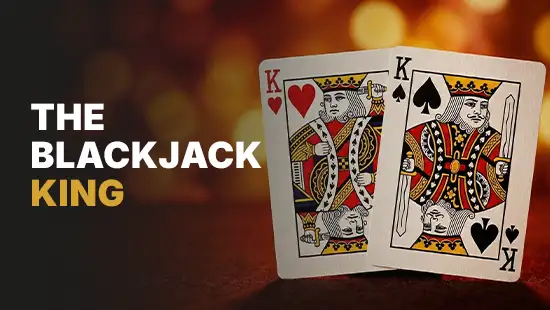

October 23, 2025, 16:00
The dangers of the gambler’s fallacy
Picture a roulette wheel with a ball that lands on black several times in a row. Players are convinced that this time, red is bound to appear. After all, it only seems fair. But when did luck ever sign a contract with us?
This happened in Monte Carlo in 1913, when the roulette wheel landed on black 26 times in a row. Players lost fortunes betting on red, certain it was “due.” That night became a cautionary tale for players all over the globe, illustrating just how destructive biases like this can be.
What is the gambler’s fallacy ?
The gambler’s fallacy is the mistaken belief that past random events influence future ones, especially in games of chance. It’s the conviction that chance “needs to even out.” In reality, each spin, each coin toss, each dice roll is independent. Past outcomes have no power over what comes next.
This bias doesn’t just affect gamblers. It can creep into decision-making in finance, sports, and everyday life. Investors might believe a declining stock is bound to rise soon, or a fan might think a losing team is “due” for a win. Such reasoning is dangerous because it replaces logic with false expectations.
The psychology behind the illusion
Why are so many of us so easily fooled? The roots lie deep in how the human mind processes chance.
One driver is the common belief that random sequences should look random. If a roulette wheel shows black after black, our brains expect red to appear soon to “balance things out.”
Another culprit is our tendency to expect small samples to mirror long-term averages. Probabilities only stabilize over very large samples. We wrongly project that expectation onto short runs.
Our brain is wired to see patterns even when none exist. Studies suggest that traits like impulsivity and sensation-seeking amplify this vulnerability, especially in pathological gamblers.
Beyond the casino: everyday gambler’s fallacy
The gambler’s fallacy isn’t confined to online casinos in Belgium. It seeps into our daily judgments about people and events.
Consider financial markets. After a stock has fallen repeatedly, an investor may feel it’s “due” for a rebound. But markets don’t operate on fairness or balance, they’re driven by supply, demand, and external events, not by the memory of past price movements.
Or take recruitment: if you interview six women in a row, you might expect the next candidate to be a man. But each interview is independent of the previous ones; probability does not bend to human expectations.
Weather predictions, sports outcomes, even political polling — people often assume that streaks will “correct themselves.” This belief leads to overconfidence, poor planning, and skewed expectations.
The consequences of the gambler’s fallacy
The gambler’s fallacy can be particularly destructive in casinos because it feeds directly into the very psychology that keeps players at the tables. In gambling addiction, studies show that individuals prone to this bias are more likely to chase losses. Convinced that a win is “just around the corner,” they double down after losing streaks, often digging themselves deeper into debt.
The psychological toll can be just as damaging as the financial one. Players caught in this cycle experience heightened stress and feelings of betrayal by “luck.” Over time, this fallacy can foster compulsive gambling. It creates a dangerous loop of false hope followed by disappointment.
How to break free from the gambler’s fallacy
Knowing about the gambler’s fallacy doesn’t automatically prevent it. Here are some strategies to avoid it:
Understand true randomness: Independent events remain independent. There is no cosmic bookkeeping.
Reset after every event: Psychologists recommend treating each outcome as a new sequence, not part of a streak. By mentally “resetting,” you resist the urge to overconnect past and future.
Focus on probabilities and data: Replace intuition with math. Instead of asking “What’s due?”, ask “What’s the actual probability of this event right now?”
Build personal guardrails: Set limits on your gambling with PepperMill Casino’s responsible gambling tools. Guardrails help contain irrational impulses before they spiral into costly mistakes
Chance has no memory
The gambler’s fallacy is more than a quirk. It’s baked into human cognition. It thrives on our desire for balance in a world where randomness reigns. By understanding its roots and practicing strategies to resist it, we reclaim a measure of rationality against problematic gambling behaviours.


